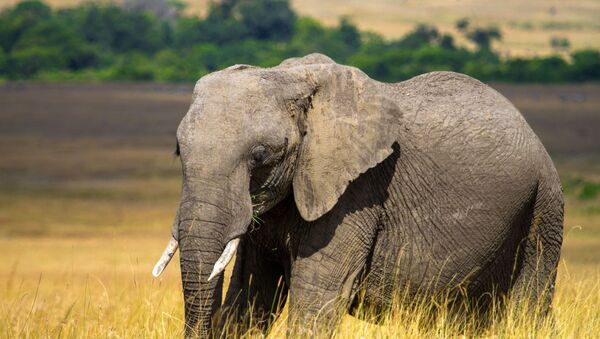Indians living near elephant habitats in the country are mostly sensitive towards the animal, however some people are just too casual to care about their own safety let alone the lives of animals.
Parveen Kaswan, an Indian Forest Service (IFS) Officer shared a video on Twitter that showed a reckless biker speeding on a road that was blocked by forest staff because an elephant was crossing it.
The 36-second-long video shows the helmet-less biker, who purposely rode on an otherwise blocked road, avoiding a collision with an adult elephant that can be seen running out of the forest to cross the road.
You know what is most difficult part of #wildlife management. Managing the #humans. Even after blocking the road by staff this person decided to cross it while others were waiting. Just missed by fraction of a second from becoming a memory. Don't do this ever. pic.twitter.com/CbL0e3gCDj
— Parveen Kaswan, IFS (@ParveenKaswan) February 7, 2020
Netizens have as well criticised the reckless biker on Twitter, with many saying that humans are "the most dangerous animals" on the Earth:
Humans the most dangerous animals on this earth
— Ajit (@aju_tl) February 7, 2020
Because we Indians never learned to respect anything, whether it’s policy, rule, instructions. Not sure what fun people get to break the rule...
— kumarsamir (@kumarsamir) February 7, 2020
Elephants have more number of total neurons than humans. It seems humans are losing it over time.
— Dr. Gurmeet Singh (@DrGurmeetSing14) February 7, 2020
The Indian elephant is a smart, social and migratory animal, which is struggling to thrive in a continually shrinking habitat. They are used by forest dwellers to pick wood and carry tourists for rides in the national forests.
Because they are a part of immediate human-lifestyle, they often get into conflicts with people, get into accidents and fall prey to poachers who prey on them for their ivory-bearing tusks.
In November, the Indian Ministry of Environment, Forest and Climate Change proposed the inclusion of Indian elephants in the global list of endangered animals.
The subject would be discussed during the upcoming 13th edition of the Conference of the Parties to the Convention on Migratory Species (CMS COP) which India is hosting in February 2020.


